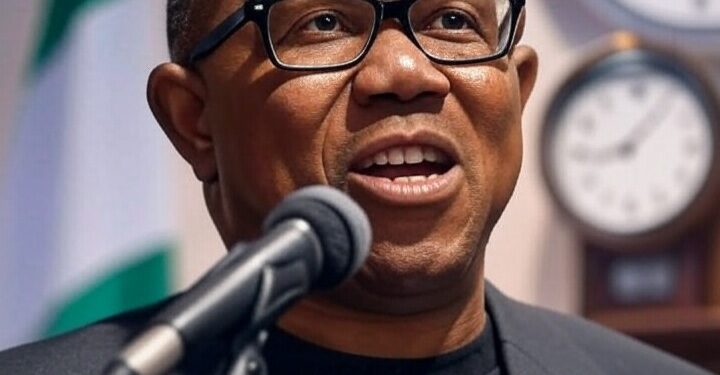Peter Obi, a leading voice for Nigeria’s renewal, has reaffirmed his sacrosanct commitment to serve only one four-year term if elected President, undeterred by skeptics who question his sincerity. Drawing inspiration from global icons like Abraham Lincoln, John F. Kennedy, and Nelson Mandela, Obi asserts that true leadership is measured by impactful, accountable service, not prolonged tenure. His pledge, backed by a proven track record of integrity, directly challenges critics and aims to restore trust in Nigerian governance.
Addressing the Skeptics
Obi’s vow to limit his presidency to a single term has sparked debate, with some dismissing it as unbelievable. One critic remarked, “Even if Peter Obi swears by a shrine, Nigerians won’t believe he’ll serve just one term.” Another stated, “Anyone promising only one term needs a psychiatric evaluation.” Obi acknowledges this cynicism, rooted in years of broken political promises, but firmly distinguishes himself from the norm. “They are judging me by their standards—where promises are made to be broken,” he says. “But Peter Obi is not cut from that cloth.”
Pointing to his tenure as Governor of Anambra State, Obi highlights a verifiable record of fulfilling promises to improve education, healthcare, infrastructure, and financial prudence without deviation. “I did not swear by a shrine, nor have I been certified mentally unstable for honoring my word,” he quips, addressing detractors while underscoring his commitment to integrity.
A Vision for a Focused Four Years
Obi’s one-term pledge is not a gimmick but a framework for purposeful leadership. He argues that prolonged tenure often breeds corruption, citing Mandela’s single term as a model of principled governance. “Longevity in office is not a mark of success,” Obi declares. “Forty-eight months is enough for a focused leader to make a meaningful difference.”
If elected, Obi commits to:
– **Sanitizing governance**: Restoring transparency and accountability.
– **Tackling insecurity**: Using resources effectively to ensure safety.
– **Prioritizing education, healthcare, and poverty alleviation**: Uplifting millions through human capital investment.
– **Catalyzing small businesses**: Driving growth through entrepreneurship.
– **Combating corruption**: Confronting systemic rot with resolve.
– **Building a productive economy**: Shifting Nigeria toward agriculture, technology, and manufacturing.
“These are realistic, actionable goals achievable within four years,” Obi emphasizes, rejecting utopian labels.
Rebuilding Trust Through Action
Obi’s pledge is a direct response to Nigeria’s trust deficit. He challenges critics to examine his record rather than speculate. “My word is my bond,” he asserts, noting that the Constitution’s four-year term aligns with his vision. To those questioning his mental fitness for such a promise, he retorts, “We may as well question the framers of our Constitution.”
His call to action is clear: “A new Nigeria is POssible.” Obi invites Nigerians to demand accountability and embrace a future where leadership serves the people, not personal ambition. “I have dedicated my public life to proving integrity is not a myth,” he says. “I will not betray that trust.”
A Movement for Change
Despite skepticism, Obi’s one-term vow resonates as a bold stand against entrenched power. By committing to 48 months of focused governance, he challenges Nigerians to reimagine leadership. Stakeholders—citizens, policymakers, and global observers—are urged to rally behind this vision of transformative, trustworthy governance.









































